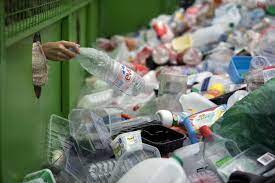
Educating for Action: Promoting Awareness of Plastics Recycling
Plastic recycling has grown to be increasingly crucial as the community grapples with environmental obstacles. Knowing the basic principles of plastic recycling is vital for everyone. Here’s all you have to know:
Plastics Category: Plastics are broadly sorted into seven varieties based upon their compound formula and recycling properties. These are classified as resin recognition codes (RIC) and therefore are symbolized by amounts in the recycling mark. Every type have their distinctive components and recycling requirements.
Recycling Method: Plastic recycling typically entails a number of stages. Series: Plastics are gathered from a variety of places, which includes homes, companies, and businesses. Searching: When gathered, plastics are categorized depending on their resin variety to streamline the recycling approach. Cleansing: Plastics are cleaned to eliminate pollutants such as grime and brands. Shredding: The cleansed plastics are shredded into tiny sections to help further digesting. Melting: The shredded plastic is melted down and shaped into pellets or flakes. These enables you to make new plastic merchandise.
Obstacles: Even with its value, plastic recycling faces quite a few challenges. Toxic contamination: Contamination from non-recyclable resources can prevent the recycling procedure and minimize the quality of re-cycled plastics. Restricted Infrastructure: Not enough recycling infrastructure in several areas makes it challenging to accumulate, sort, and recycle plastics properly. Monetary Viability: Recycling certain kinds of plastics may not be economically workable on account of very low market desire or higher processing expenses.
Rewards: Despite problems, plastic recycling delivers several benefits. Environment Efficiency: Recycling plastics conserves normal solutions and reduces the need for virgin plastic generation, thus decreasing environment affect. Vitality Savings: Recycling plastics consumes less power when compared with creating new plastics from unprocessed supplies. Work Development: The recycling industry produces job opportunities in series, selecting, processing, and developing.
Bottom line: plastic recycling is a vital part of environmentally friendly waste materials managing. By knowing the essentials of plastic recycling and helping recycling projects, people and neighborhoods can play a role in a cleaner and healthier surroundings.



